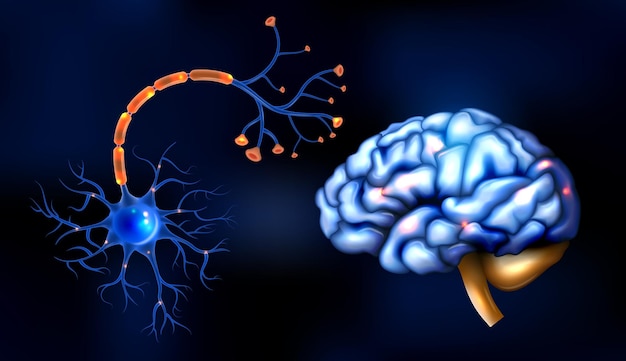Nervous System Facts – Exploring the Complexities of the Human Brain

The nervous system is like the conductor of our body’s orchestra.
Your brain sends and receives messages at lightning-fast speeds through the nervous system.
The nervous system is responsible for coordinating every movement you make.
Nervous system cells, called neurons, communicate through electrical impulses.
Just like a computer, the nervous system processes information and makes decisions.
Did you know that the human brain is more powerful than any computer ever created?
The nervous system is divided into two main parts: the central nervous system and the peripheral nervous system.
The brain is the command center of the nervous system.
Have you ever wondered why we feel pain? It’s the nervous system alerting us to potential danger.
When you touch something hot, your nervous system quickly sends a signal to move your hand away.
The spinal cord is the communication highway between the brain and the rest of the body.
Reflexes are automatic responses controlled by the nervous system, such as pulling your hand away from something sharp.
The nervous system also plays a role in regulating our body temperature.
Without the nervous system, we wouldn’t be able to feel, see, hear, or even breathe.
The human nervous system is incredibly complex, with billions of neurons and trillions of connections.
The autonomic nervous system controls unconscious functions like heartbeat and digestion.
Nervous System Facts – Exploring the Complexities of the Human Brain part 2
The brain and spinal cord are protected by a bony structure called the skull and vertebral column.
The peripheral nervous system includes nerves that extend throughout the body, allowing us to feel and move.
The nervous system is constantly adapting and changing to our environment.
Neuroplasticity is the brain’s ability to reorganize itself and form new connections.
Have you ever experienced butterflies in your stomach? It’s your nervous system reacting to a stressful situation.
The average human brain weighs about 3 pounds, but it is responsible for everything we do.
The nervous system is incredibly efficient, transmitting messages at speeds of up to 268 miles per hour.
Sensory neurons allow us to experience the world through our five senses.
The fight-or-flight response is a survival mechanism triggered by the nervous system during dangerous situations.
Our emotions are controlled by the limbic system, a part of the nervous system.
The nervous system is the reason why we can walk, talk, and even dance.
Neurotransmitters are chemicals that help transmit signals between neurons.
The myelin sheath is a protective covering that allows signals to travel quickly along neurons.
The nervous system develops rapidly during early childhood, shaping our abilities and behavior.
Damage to the nervous system can result in paralysis or loss of sensation.
The brain is divided into different regions, each responsible for specific functions like memory, language, and movement.
The nervous system is constantly receiving and processing information, even while we sleep.
Did you know that the nervous system starts developing just a few weeks after conception?
The human brain has over 100 billion neurons, each with its own task to fulfill.
The nervous system is connected to the endocrine system, working together to maintain homeostasis.
Neurological disorders, such as Alzheimer’s and Parkinson’s disease, can affect the functioning of the nervous system.
Thoughts and memories are formed through intricate connections between neurons in the brain.
The vagus nerve is responsible for regulating our heart rate and digestion.
The nervous system is responsible for our ability to learn, adapt, and solve problems.
Sleep is crucial for the nervous system to recharge and repair itself.
The nervous system allows us to experience emotions such as happiness, fear, and love.
The brain’s ability to perceive and interpret the world is due to the complexity of the nervous system.
Neurogenesis is the process of forming new neurons, which can occur throughout our lives.
The nervous system is a marvel of nature, allowing us to experience life to the fullest.
